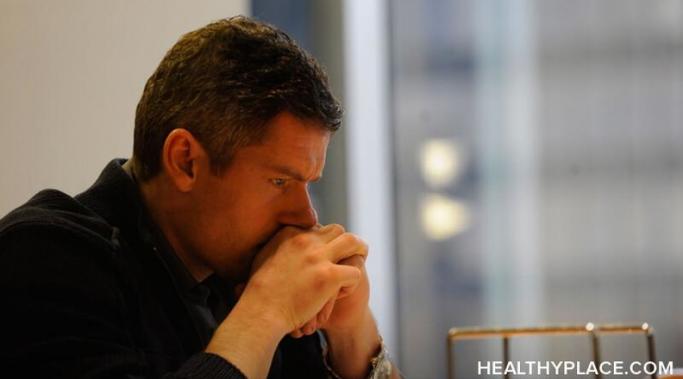Blogs
When we have a past trauma, so many things can trigger an old memory to rise up and take over our emotions. A smell, a shape, a sound, a touch, a person. Anything our senses take in can send us emotionally back to a threatening past trauma.
The suffering of this is intense. It may be a nightmare, a flashback, or an anxiety attack. It can also be incredibly frustrating and disappointing that even though you are presently safe--that you feel the persistent panic as though you are still in constant danger.
The first thing I thought of this morning was killing myself. Literally, as consciousness slowly overtook my brain thoughts of suicide were all that were there.
It’s a bad day.
The majority of survivors begin PTSD recovery in traditional talk therapy. It's a natural place to start. As a society, we're very in tune with 'therapy' and the idea of talking to a professional when something is wrong emotionally and we don't know how to fix it. But is talk therapy really effective in healing PTSD? The answer is, NO. Here's why...
Hiya readers! Mental illness advocacy is important and can take place even in the context of your own family. I recently shared some of my challenges in giving my father the talk about Bob's ADHD diagnosis. It wasn't easy. For a few reasons - the biggest one being that I was afraid of how my father would react. For someone like me who wasn't allowed the freedom to feel all of my feelings (including anger) towards my father, I grew up thinking that I couldn't ever be upset because it was SO scary for me. So you can imagine advocating for my son's mental illness didn't come easy to me.
I grew up thinking that my heart was going to jump out of my chest anytime I thought about asserting myself much less confronting someone. Before having my child, I didn't. I was more passive in showing my feelings. They existed, but in a roundabout way.
It’s been well over 20 years since I last watched the Oscars and I must confess that not watching them this year was particularly enjoyable. My slow ascent out of the damp crypt known as mental illness has instilled a palpable fear of association with the certifiably insane; I know better than most that crazy is contagious.
As a policy I avoid contact with the pathologically angry, the insecure so brittle they might be shattered by a sneer, fear-driven treacherous backstabbers who would sooner eat shattered glass than speak the truth, and reality TV personalities. I avoid them because I don’t want to catch what they have.
Lying in bed, covers pulled up. Look at the clock and know you are late. You need to go. You need to move. You need to get up. You know this. And yet your body feels heavy, stuck. You yell at yourself in your head. Get up! But you don't. Get moving! But you don't. It's as if Depression has paralyzed you. You know what you need to do. You know what the consequences will be if you don't. And yet you still feel like you can't move.
Sometimes an emotional crisis can't be avoided. When an emotional crisis happens, it is important to know how to calm down. There are many ways to self-soothe, but for now I'll focus on three: petting an animal, burning incense, and drinking herbal tea.
For me, hypomania is the state before a manic episode. I experience happiness, creativity, energy and an absence of inhibitions. It’s pure bliss. And the part of your brain that worries about consequences turns a blind eye to your hypomanic adventures. But the downsides of hypomania and mania are just as awful as those of a drug addict who hits rock bottom- job loss, failed marriages, arrests and sometimes even death.
Jails, institutions and death. These are the ends of addiction. And as far as the death part is concerned, it doesn’t always mean physical death. Have you ever watched the TV series, The Walking Dead? Well, that’s what addiction can do to a person, metaphorically speaking. The addict is devoid of any real kind of life source and is simply feeding off of others to maintain his existence.
There are a lot of reasons that I chose to get into the field of addiction treatment, and my beliefs in the danger of AA's addiction recovery program (and others modeled on it) was the main reason. Why do organizations such as Alcoholics Anonymous retain such a glorious public perception, all the while having success rates of approximately 5 per cent after one year? Even AA's own Comments on A.A.'S Triennial Surveys, which is difficult to find, and even more difficult to decipher, does in fact state these dismal results.1









